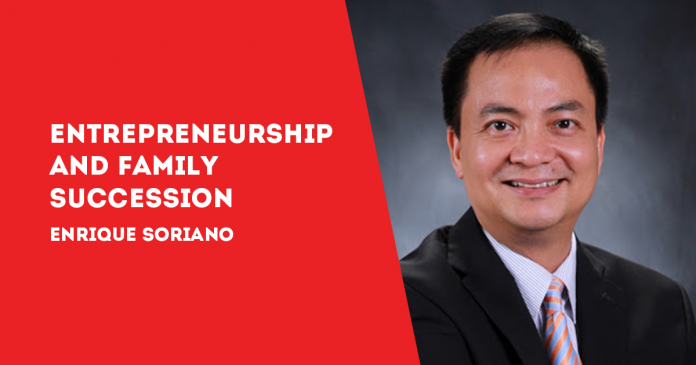
BY PROF. ENRIQUE SORIANO
LAST WEEK, we encountered a compelling case involving the B family business, a third-generation real estate and manufacturing company.
Despite its market success, the company was on the brink of instability due to internal conflicts and governance issues, including conflicts of interest, ambiguous roles, nepotism, and leadership succession disputes.
Family members often prioritized personal interests over the business, resulting in inefficiencies and mistrust. Responsibilities were unclear, leading to poor decision-making and operational disruptions. Non-family employees felt demotivated by blatant favoritism, and disputes over succession created tension and confusion. The elderly founder, despite his failing health, doubted his children’s capabilities and clung to power, exacerbating the instability.
To address these issues, we recommended that the family draft and implement a comprehensive Family Code of Conduct (FCOC). This code defined clear roles and responsibilities, established conflict resolution mechanisms, set ethical standards, and planned for transparent succession.
The results were transformative: trust and cooperation improved, conflicts diminished, decision-making became more efficient, non-family employees felt valued and motivated, and a stable leadership transition was ensured, securing the company’s future. This case underscores the critical importance of strong governance and clear policies in family-run businesses.
Key Learnings from the B Family Case
The B family’s experience illustrates the crucial role of a Family Code of Conduct in managing family-owned businesses. By establishing clear guidelines and ethical standards, family businesses can navigate internal challenges, foster a positive work environment, and ensure long-term success.
Implementing a Family Code of Conduct and promoting ethical behavior within the business are essential for preserving trust, integrity, and stability. These measures help mitigate conflicts, enhance operational efficiency, and secure a prosperous future for generations to come.
Why Do Family Businesses Need a Code of Conduct?
Time and again, I am asked why a family-owned business needs to subject itself to a Family Code of Conduct (FCOC). Let me start with the most fundamental answer.
A Family Code of Conduct is simply a set of 5 Rs that institutionalizes rules and regulates family behavior in and outside the enterprise. The code highlights the rules, roles, rights, responsibilities, and real accountabilities that reflect the values and expectations of a family.
Corporations have codes of conduct — a clear set of policies and procedures outlining what’s expected and appropriate at the company level. Schools have their own Codes of Conduct too.
A Family Code of Conduct is similar to that of an organization. The document lets each family member know what is expected of and appropriate for every individual working and not working in the family business.
Thus, it is crucial for families to understand why a Family Code of Conduct is indispensable in any family enterprise committed to stewardship and legacy. I am sharing some of the compelling reasons.
Generational Change and Conflict
Generational change, leadership void, unclear roles, sibling rivalry are just some of the issues that can lead to conflict. In most cases, the acrimony can be unplanned as it is often due to a history of disagreements or the unexpected death or incapacity of the existing business leader.
Suddenly, multiple branches of the family find themselves in charge of the business with different leadership styles. Who will assume the lead role? What are the rules of engagement when all siblings inherit equal ownership? How will these owners behave during meetings, voting, or when their opinions are set aside?
The transition from the first to the second and then third generation can further increase both the number of owners and the diversity of their ambitions for the business. (To be continued)
***
The W+B Family Governance Leadership Series: A Resounding Success!
I want to personally thank everyone who attended the three-day event, which culminated in a captivating fireside chat in Binondo, Chinatown last Wednesday. The audience were inspired upon hearing from Mr. Gerry Chua, the visionary third-generation leader, and his eldest son, Mr. Geric Chua, the fourth-generation successor of the renowned Eng Bee Tin Group, a beloved family business operating for the last 112 years!
Due to numerous requests, the organizer, ICON Events, is considering another run, possibly in the Visayas and Mindanao. Stay tuned for updates.
If your family is experiencing confusion or conflict and you’re interested in learning the tools and strategies to navigate the complexities of family business dynamics with clarity and purpose, please reach out to Christine at wb@wbadvisoryasia.com.
Don’t let unresolved conflicts hold your business back./PN



